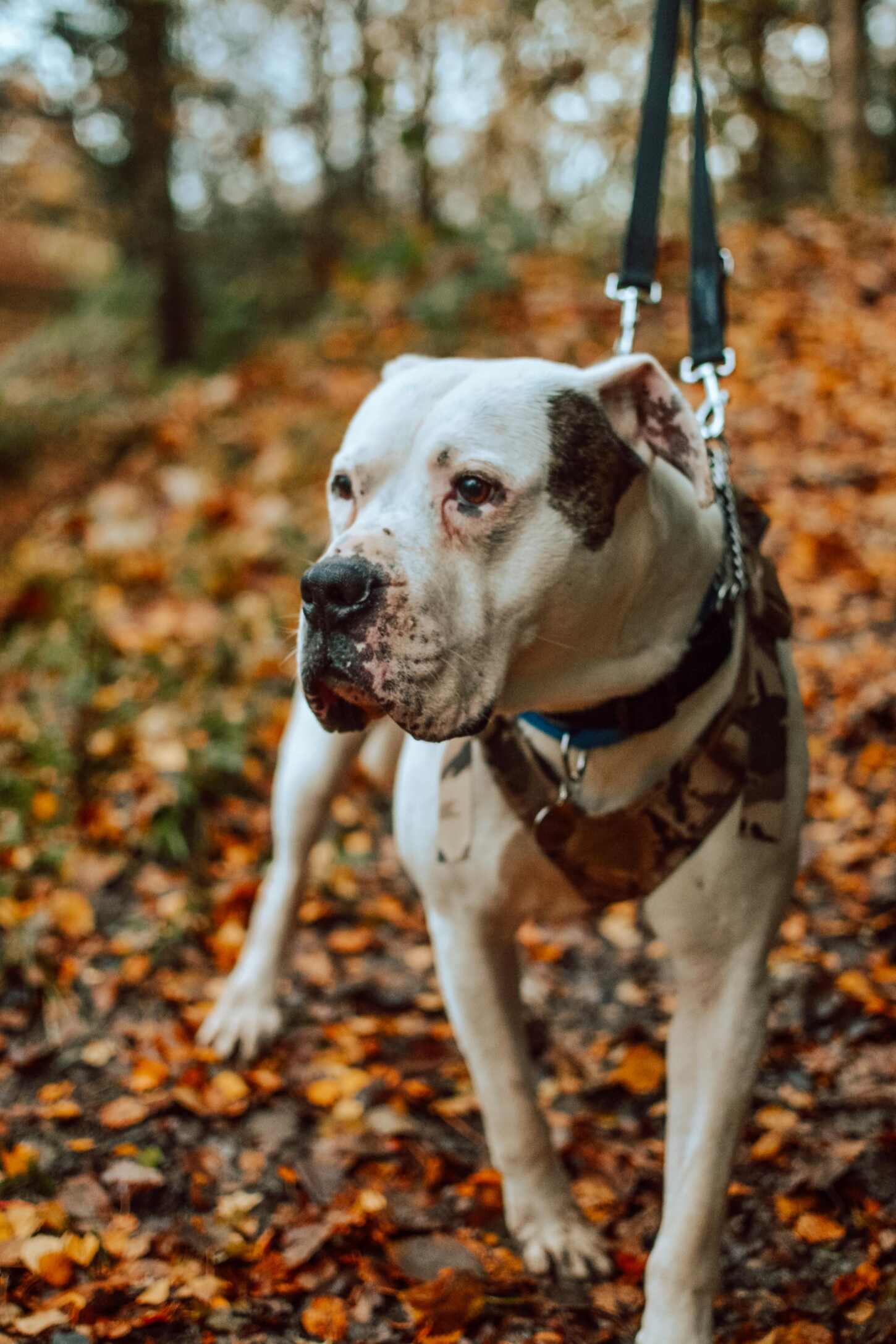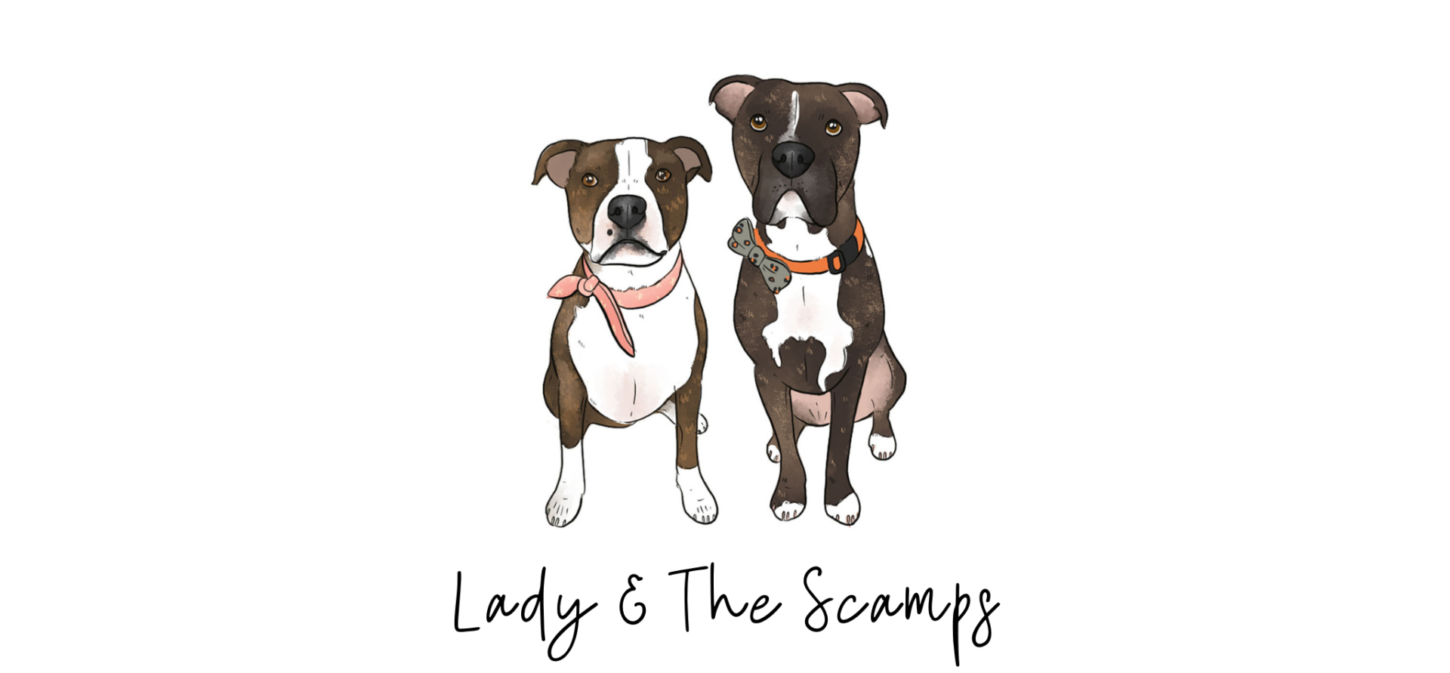Crisp mornings, chunky knits, log fires and pumpkin spiced lattes – Autumn is one of my favourite seasons. Phoebe and Frank love woodland walks through fallen leaves, and then snuggling up by the fire to warm up.
But as beautiful as Autumn is, the season poses multiple dangers to dogs, including some that could be fatal, from Halloween candy to conkers and pumpkins.
Cheshire veterinary nurse Becky Williams – who owns Frank’s brother, Archer – has revealed some of the Autumn toxins to be aware of, to avoid a trip to the vets, or your dog suffering any devastating symptoms.

She said: “If you are concerned that your pet has ingested anything harmful, then it’s best to call the vet ASAP to be checked over and begin treatment if necessary.
“Also be aware that Trick or Treaters with strangers knocking, and bonfire night may cause stress and upset for some dogs. If your dog is prone to stress, put a sign on your door asking tick or treaters not to knock on Halloween.”
Here are eight common toxins to keep away from your dog this Autumn:
Conkers
I love to collect conkers in autumn, and often make a display of faux leaves, pumpkins and conkers each October – but I always make sure they’re out of reach of The Scamps.
Becky said: Conkers contain a chemical called aesculin which can be toxic to dogs, which is also found in the leaves and bark of the tree.”
Aesculin toxicity presents as:
- Vomiting
- Diarrhoea
- Disorientation
- Weakness
- Muscle tremors
- Collapse
Whilst a dog would have to eat a lot of conkers for toxicity to occur, it’s not the only risk caused by the seasonal seeds.
Becky added: “Conkers also pose a choking risk, or may become stuck in the intestines. I’ve sadly seen a dog die due to a single conker being stuck in her intestine. Symptoms of an intestinal obstruction include: vomiting, inability to keep food/water down, abdominal discomfort.”

Read more: 10 Spring toxins harmful to dogs
Acorns
Like conkers, acorns can also cause toxicity and blockage, so do keep an eye out if your dog likes to rummage on woodland walks.
Becky explained: “The toxic chemical in acorns is thought to be tannic acid, which can result in damage to the liver and kidneys. Symptoms include:
- Vomiting
- Diarrhoea
- Lethargy
- Abdominal discomfort
“Acorns may also result in choking or intestinal blockage, like conkers.”
Rodenticides
The rat population tends to peak in autumn, but it’s followed by a decrease in natural food and a drop in temperature which leads them to move around in search of food and shelter – which can often be garden sheds and buildings in the vicinity of food or animals.
As a result, there may be more rodenticides placed down to get rid of unwanted pests – but these can be extremely harmful to pets.
Becky said: “Many rodenticides found in the UK contain compounds that affect clotting abilities. Ingestion of these products – especially bait used by professional pest controllers – can cause bleeding and clotting problems. This may also occur if your dog eats rodents that have ingested rodenticide.”
Read more: 14 tips for keeping your dog calm during fireworks on bonfire night

Sweets and chocolate
Autumn means Halloween – and Halloween means Trick or Treating. But some treats can be fatal to dogs, including sweets, chocolate and chewing gum.
Becky’s dog Archer was once rushed to her veterinary practice after eating a full pack of gum.
She said: “With Halloween just around the corner, the risk of toxicity from sweets and chocolate is high. Many sweets contain the artificial sweetener xylitol, which is toxic to dogs and can result in hypoglycaemia (low blood sugar), liver failure, and even death.
“Just one piece of chewing gum can be fatal to a dog. My American Bulldog Archer once raided my handback and ate a whole packed of chewing gum and lots of tablets – cue ALL the vomiting.”
As many pet owners know, chocolate also poses a risk as a result of the theobromine and caffeine.
Becky added: “Dogs are unable to metabolise these chemicals like humans can, which can lead to symptoms like muscle tremors, vomiting, diarrhoea, seizures, restlessness and a racing heart.”
Raw Pumpkin

Pumpkin can be a great addition to your dogs diet, and can be found in food and many treats. Canned and pureed pumpkin is best to feed your pet if you’d like to add the fibre rich vegetable to their diet, but Becky warns to be careful if they’ve never had it before.
She said: “Although eating pumpkin isn’t strictly bad for your dog, too much may result in an upset gastrointestinal system with vomiting and diarrhoea, especially if they’re not used to eating it.”
Many people leave Jack-o-lanterns out on their doorstep each year, but if your dog gets overly curious, it could end quite badly.
Becky added: “Be aware of pumpkins left out after Halloween. Mouldy, rotten food pose a high risk to dogs. Mycotoxins are found in mouldy food and can result in seizures/tremors and can be fatal. I have sadly seen a dog die from eating mouldy food.”
And if you have pumpkins out in your own garden, be careful your dog doesn’t pinch them, because the stems can splinter and cause obstruction.
Antifreeze
You’ll often hear stories of cats being poisoned by antifreeze, and it’s a risk for dogs too.
Becky warned: “It tastes sweet, and that’s why they like it. But antifreeze contains a chemical called ethylene glycol which can cause kidney damage and even death.
“More commonly seen in cats, it still poses a huge risk to dogs too. Symptoms include wobbly on their feet, hypersalivation, vomiting and seizures.”

Compost bins
We know all to well the devastating effects that compost can have on dogs, after Frank suffered a series of seizures last summer after snaffling a chunk whilst we tended the garden veg patch.
Compost bins and mulch often contain mouldy food, which, as mentioned above, contain mycotoxins that can even be fatal for dogs. We were lucky that Frank ate a relatively small amount compared to his size, but the experience was still terrifying for both us, and him.
As well as mouldy food, Becky added that your bin ‘may also contain food items that are toxic to dogs like onions, garlic, corn on the cob and avocado’.
Read more: Frank had a seizure – what happened?

Mushrooms
“It’s difficult to identify which mushrooms are dangerous to dogs and which aren’t,” said Becky, “so it’s best to stay away from them all.”
Ingesting mushrooms on a woodland walk could cause some gastrointestinal issues, whilst others could cause kidney and liver issues, and some even neurological effects.
